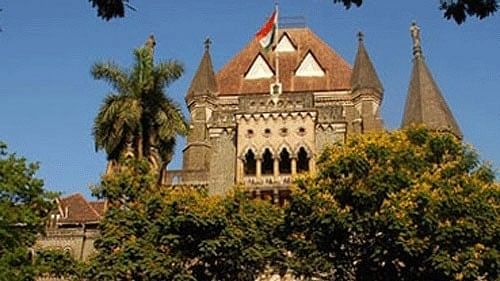
Bombay High Court.
Credit: PTI File Photo
Mumbai: The approach to tackle air pollution in Mumbai cannot be remedial anymore, it has to be preventive, the Bombay High Court said on Monday, describing the situation in the city as "emergent".
A division bench of Chief Justice D K Upadhyaya and Justice G S Kulkarni said the law and rules on air pollution were in place, but now their implementation was required.
While the air quality index in the city may be satisfactory, it will return to being poor or in the worse category in a few months, it said.
The court was hearing a bunch of petitions and one it had taken up on its own on the rising air pollution in the city in December last year.
The court on Monday noted that industries and public projects must be frequently monitored and inspected to ensure compliance with air pollution norms and rules.
"We have the law and rules. What is required is implementation. There has to be a permanent and robust mechanism to ensure implementation," the court said.
"Now we have to change the approach. It cannot be remedial, it has to be preventive. The approach now cannot be that you are thirsty so you dig a well. Now these are emergent situations," the bench said.
"Ultimately what we find is everything is in place on paper. Guidelines are there...enactments are there....still, why are we facing all this?" the court questioned.
The bench further noted that passing mechanical orders will not help.
"We should have a statutory mechanism to address all this instead of involving the court," it said.
The court said the Maharashtra Pollution Control Board (MPCB) was duty-bound to ensure all industries and public project sites comply with the norms and rules.
There has to be frequent monitoring and inspection, it said.
"The problem is during night time emission from industries is more, causing air pollution in the morning," the court said.
In the past, industries were generally located outside town or city limits, but with development, residential structures have come up around such establishments, the court said.
"Does the state government have any policy by which industries can be shifted to certain other zones?" Justice Kulkarni questioned.
Advocate General Birendra Saraf, appearing for the government, informed the bench that in accordance with earlier orders an inspection was carried out at seven public project sites and certain shortcomings were found.
These projects include road concretisation at suburban Bandra and Khar, the bullet train site at the Bandra-Kurla Complex, the Versova-Bandra Sealink, Mumbai Metro- III, Mumbai Coastal Road, and the Mumbai Trans Harbour Link.
"Certain shortcomings were found and the norms were not strictly enforced, but now everything is in place. All the shortcomings have been addressed," Saraf told the court.
The bench directed the MPCB to start the audit of industries in the state immediately.
The court posted the matter for further hearing on June 20.